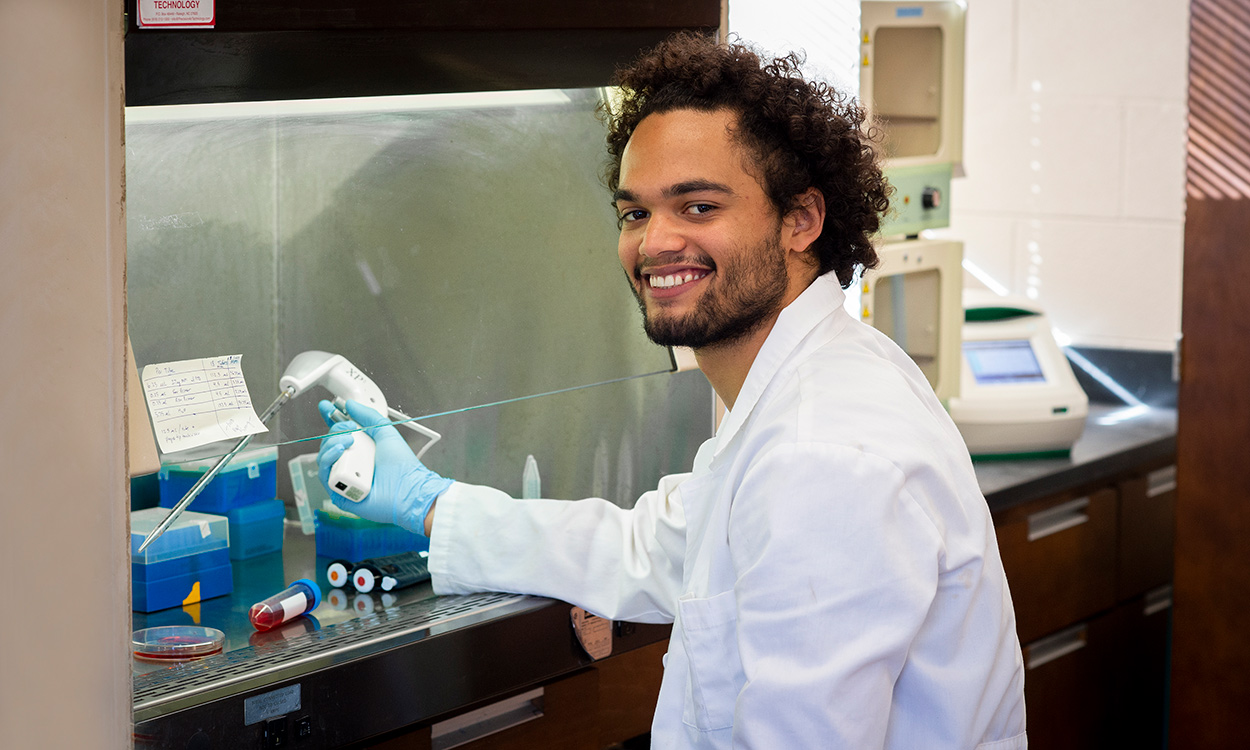Matthew McDonough awarded national fellowship to advance diversity in science research

When Western Carolina University alumnus Matthew McDonough starts the third year of his doctoral program at the University of Chicago this fall, he’ll do so as a member of a select group.
McDonough is among 50 young scientists and their advisers from universities across the country awarded a Gilliam Fellowship for Advanced Study by the Howard Hughes Medical Institute.
McDonough, a Brinson Honors College graduate from WCU in 2019 with degrees in biology with a molecular biology concentration and chemistry with a pre-med concentration, will use the three-year, $50,000 per year award to pay tuition, fees and other research and lab expenses associated with his graduate-level research. The fellowships were given to students who are conducting research in their respective fields and their advisers as part of a program to advance diversity and inclusion in science.
“It’s a vote of confidence from a really great institution, not only for me as an individual, but also for the communities I’m a part of,” said McDonough, who grew up in Asheville. “Being a Black scientist and more broadly, an underrepresented minority, it’s an honor to represent them and use this fellowship to advance representation and equity for those communities.”

Matthew McDonough
The students’ advisers participate in a year of mentor development activities that emphasize cultural awareness to help ensure an inclusive academic environment so students see themselves in science. “It’s an important relationship because my adviser, Jonathan Staley, is a big part of my training as a graduate student and is also a big part of bringing in other students and training them as well,” McDonough said. “Part of this fellowship is diversity training for my adviser and having more advisers who are trained in diversity and inclusion as a benefit to our entire scientific community, and more specifically in my field of molecular biology.”
McDonough’s research is in molecular mechanisms of mRNA splicing. “When your cells want to make proteins your DNA is converted into mRNA and part of that process is to splice out certain parts of that mRNA to make the final message that will then be converted into proteins,” he said. “I’m trying to look at the mechanisms that are involved in splicing and how the machinery that executes splicing makes decisions that affect the proteins that are made in your body.
“I’m very interested in these molecular processes because it’s kind of like little machines in your cells that don’t have a mind of their own and yet are able to carry out these highly complex reactions that are so important to the proper functioning of your body. We know that many of the genetic diseases that occur are a result of improper splicing, and so I’m just very intrigued by how your body and how your cells can execute splicing, a multistep process, without making mistakes.”
McDonough said once he graduates, he hopes to work with undergraduate students as principle investigator of a lab at a small institution. “I want to help bring more students through the sciences and help them on a similar path that I’ve followed.”

